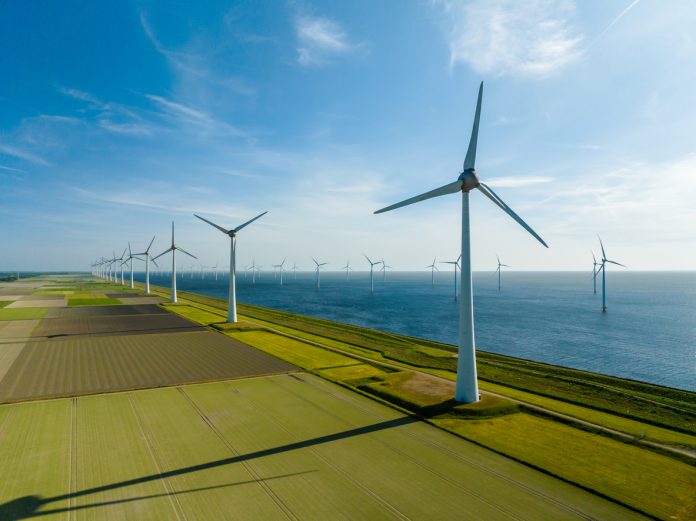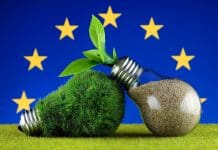Everest Group informs us about accelerating industrial decarbonization through the Clean Industrial Deal Policy
The Clean Industrial Deal policy is a pivotal initiative by the European Union (EU) aimed at achieving climate neutrality by 2050 while maintaining industrial competitiveness. This policy combines financial incentives, tax reforms, and regulatory measures to decarbonize energy-intensive industries and promote clean technology innovation. Key components include the Industrial Decarbonisation Accelerator Act, the Innovation Fund, and revised taxation strategies, all designed to address high energy costs and foster sustainable practices (European Commission, n.d.).
Policy mechanisms and impacts
The Clean Industrial Deal fosters collaboration among governments, industries, and research bodies to align industrial practices with decarbonization objectives. The Industrial Decarbonisation Accelerator Act streamlines permitting processes, enhances coordination across EU Member States, and sets clear emissions benchmarks to expedite low-carbon projects (Cornillie et al., 2024). This ensures an efficient and inclusive transition to a sustainable economy.
The Innovation Fund, funded through the EU Emissions Trading System (EU ETS), supports pioneering low-carbon technologies. It targets sectors such as carbon capture and storage (CCS), renewable energy integration, and advanced manufacturing, simplifying funding access for cleantech firms (European Commission: Directorate-General for Climate Action, 2022; European Parliament, 2022). This mechanism bridges the gap between research and market deployment, driving significant emission reductions (Hermwille et al., 2025).
Sector-specific strategies
Historically, energy taxation has favored fossil fuels, distorting competition for cleaner alternatives. The Clean Industrial Deal reforms this by imposing higher taxes on fossil fuels than renewables, reflecting their environmental impact (Humphreys, 2024). This shift incentivizes clean technology adoption and funds further decarbonization efforts. Tax credits and deductions reduce capital costs for cleantech firms, boosting their global market position.
For energy-intensive industries like steel, cement, and chemicals, the policy offers tax rebates tied to energy efficiency investments, low-carbon technology adoption, and carbon offset programs (Meyer-Ohlendorf et al., 2025). Member States implement tailored incentives, such as accelerated depreciation for clean tech assets and investment tax credits for renewables, creating a harmonized market for sustainable technologies.
The Energy Taxation Directive (ETD) revision further supports this by eliminating fossil fuel tax exemptions in sectors like aviation and maritime, promoting alternatives like sustainable aviation fuels (SAFs) and hydrogen-powered vessels (International Energy Agency, 2023). These measures drive investment in cleaner energy solutions.
The Clean Industrial Deal: Final thoughts
The Clean Industrial Deal provides a comprehensive framework for balancing industrial growth with environmental sustainability. Its success hinges on effective execution, stakeholder cooperation, and adaptability to evolving technologies and markets. By integrating these strategies, the EU sets a global standard for aligning industrial competitiveness with climate goals.
References
- Cornillie, J., Delbeke, J., Egenhofer, C., Pandera, J., & Tagliapietra, S. (2024).
A clean industrial deal delivering decarbonisation and competitiveness.
European University Institute. - European Commission. (n.d.). Clean industrial deal. Retrieved from https://commission.europa.eu/topics/eu-competitiveness/clean-industrial-deal_en
- European Commission: Directorate-General for Climate Action. (2022).
Innovation fund progress report – Report from the Commission to the
European Parliament and the Council. Publications Office of the European
Union. https://data.europa.eu/doi/10.2834/58165 - European Parliament. (2022). The EU Innovation Fund: How to make it work
for clean tech. Retrieved from https://www.europarl.europa.eu/thinktank/en/document/EPRS_BRI(2022)698883 - Hermwille, L., Leipprand, A., Kiyar, D., Ruß, M., Hullmann, C., Elsner, C., … &
Fischedick, M. (2025). Rapid assessment of the Clean Industrial Deal: An initial
assessment of the EU Commission’s industrial policy work programme for
2025-2029. Wuppertal Institut für Klima, Umwelt, Energie. - Humphreys, C. (2024). Making a success of the Clean Industrial Deal.
- International Energy Agency. (2023). Decarbonizing aviation and maritime
sectors: Challenges and opportunities. - Meyer-Ohlendorf, N., Kögel, N., Gores, S., & Graichen, J. (2025). Implementing
the EU 2040 climate target: Building blocks and measures.











